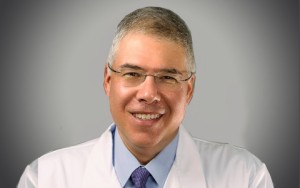Bergen Medical Associates provides minimally invasive kidney stone treatment
When it comes to the best in minimally invasive kidney stone treatment, Bergen Medical Associates leaves no stone unturned
If you’ve never struggled with a kidney stone condition, there’s a good chance you know someone who has. More than half a million people end up in the emergency room for kidney stone problems every year and an estimated one in 10 Americans will experience a kidney stone in their lifetime, according to the National Kidney Foundation.

Richard Garden, MD, board-certified urologist and director of the Division of Urology for Bergen Medical Associates, which has six offices throughout Bergen County
Richard Garden, MD, board-certified urologist and director of the Division of Urology at Bergen Medical Associates, which has six offices throughout Bergen County, discusses kidney stones, including how and why they form, symptoms of kidney stones and how they’re treated.
“Kidney stones are hard stones ranging in size from grains of sand or pebbles to significant-sized rocks that form in the kidneys, ureters and other parts of the urinary tract,” Dr. Garden said. “They’re caused by high levels of certain minerals in the urine, whether that be excessive uric acid, magnesium and ammonia, or calcium, the most common cause of kidney stone formation.”
While you’ve likely heard of kidney stones being painful to deal with, people with the condition do not experience the same symptoms. “There’s no one single presentation and in my over 30 years in practice, I’ve seen many patients who are unaware that they have kidney stones that are causing harm to their system,” Dr. Garden said. “Others experience severe pain. While some stones can sit in the kidney out of harm’s way for months or even years, stones can become painful if they move and get into the body’s narrow drainage system (ureters); then urine has no place to go and the kidney can get blocked and swollen.
“This can cause unrelenting pain anywhere from the abdomen to the groin and can also be associated with nausea and vomiting, pain in the testicles for men, feelings of having to urinate more frequently or with greater urgency (often mimicking a urinary tract infection), and blood in the urine,” he said. “No matter how they position themselves, individuals often can’t get comfortable or experience relief until they get pain medication or the stone moves a bit.
Just as the symptoms differ, the causes of kidney stones also are not all the same. “From diet and genetics to environmental factors, co-existing medical issues and more, there’s no one singular cause of all stones and multiple factors can lead to stone formation,” Dr. Garden said. “One common cause is lack of adequate hydration — when there’s not a lot of urine, it can become a very concentrated solution that allows minerals to develop into crystals, which ultimately attract other crystals and form into stones.
“In other people, too much animal protein, calcium oxalate (found in foods like beets, spinach, nuts and tea), or salt in the diet can lead to the formation of stones. In addition, individuals taking diuretics or possessing such medical issues as inflammatory bowel disease, gout or excess parathyroid hormone in their system can be at greater risk for developing kidney stones,” he said. “As urologists, we need to look at all of these factors along with the type of stone to try to identify the specific cause(s) in each individual that led to the development of their kidney stone(s).”
Regarding the treatment of kidney stones, Dr. Garden noted that every patient is unique and, all things being equal, the best treatment is no treatment in the sense that the patient is able to pass the kidney stone on their own. “However, the bigger the stone is, the less likely it will be able to pass through the small-diameter ureters,” he said. “Decades ago, we used to do surgery to remove larger stones from patients who were in a lot of pain, but we rarely do that now. Today, we use minimally invasive techniques designed to preserve the integrity of the urinary system, often taking a bigger stone and breaking it into smaller fragments that we can remove with special instruments or that are small enough to pass on their own.
“Among the common techniques we use are shock-wave lithotripsy, which uses high-energy shock waves outside the body to break up the stone, or ureteroscopy with laser lithotripsy, which applies a laser beam directly to the stone to break it into small pieces,” he said. “These same-day procedures are typically very effective and have minimal side effects.”
While some studies show that if those who have had a kidney stone in their life have a 30% to 60% chance of getting another one at some point, there are things people can do to minimize their risk. “Among them, staying well-hydrated is key and water is by far the best source of hydration,” Dr. Garden said. Sodas, teas and juices sometimes create minerals that predispose people to kidney stones; therefore, water is the optimal choice. “In some cases, adding lemon juice to water can help change the pH in your system and limit the development of certain types of stones,” he said. “A good, balanced diet in moderation is also beneficial. However, should anyone need medical intervention for a kidney stone, our team at Bergen Medical Associates takes pride in helping our patients and delivering the best possible results.”
With offices in Emerson, Paramus (two), Ridgewood, Northvale and Montvale, Bergen Medical Associates offers primary care and 12 areas of specialized care, providing patients locations where many medical services are available in one place. The multispecialty group fosters an environment of collaboration among the physicians, which results in a seamless continuum of care for patients. For more information, contact us today or call 201-967-8221.
Leave a reply